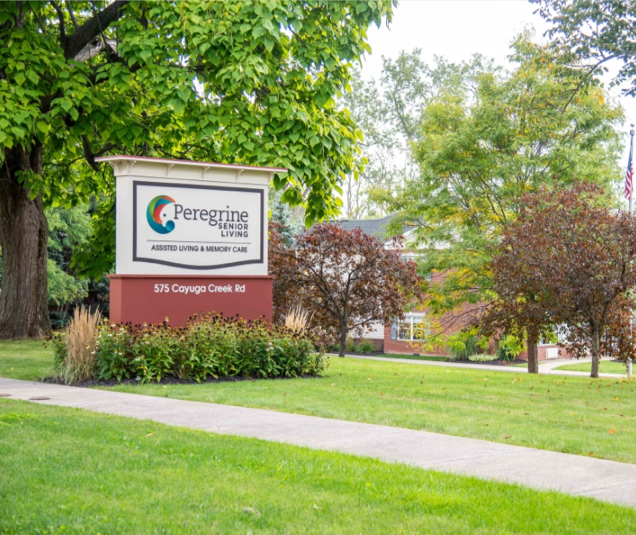Navigating the complex terrain that comes with senior care is a task laden with love, empathy, and a multifaceted understanding of the needs and nuances that come with aging. Part of that is recognizing how much help someone needs and when it may be time to consider assisted living.
At the heart of this care are the activities of daily living (ADLs). These are the fundamental activities that we do every day that allow us to manage our basic needs and include:
- Eating
- Dressing
- Personal hygiene
- Using the restroom
- Controlling the bladder
- Moving from one place to another
Assessing the ability to perform ADLs independently can help signal how much daily assistance your loved one needs.
Why ADLs Matter to Seniors & Caregivers
The ADLs are essential to daily health and happiness. They serve as a barometer for one’s ability to live independently. When these abilities are compromised due to aging, injury, or illness, it can impact a person’s quality of life and ability to stay in their own home.
But what exactly constitutes an ADL? And how can we help our loved ones maintain their independence for as long as possible?
The 6 Basic ADLs
Personal Hygiene
Personal hygiene involves more than cleanliness; it’s a foundational step towards maintaining health and self-esteem. It includes bathing, grooming, oral care, and skincare.
For our older loved ones, especially those with arthritis or dementia, these tasks can become overwhelming. Encouraging and helping with bathing schedules, offering adaptive grooming tools, or simplifying oral care routines with technology like electric toothbrushes can go a long way in supporting our loved ones with their hygiene needs.
Dressing
Dressing is an often-overlooked ADL but is critical for maintaining dignity and comfort. Complex clothing fasteners or a decline in motor skills can complicate this seemingly simple task.
Lay out clothes in the order they go on, and consider clothing with Velcro or magnets instead of buttons. These small changes can greatly affect your loved one’s ability to dress independently.
Toileting
Toileting can be a sensitive and challenging issue for seniors. Incontinence, mobility issues, or generalized weakness can all contribute to difficulty completing this task.
Consider installing bathroom grab bars, providing incontinence products, or creating a structured toileting schedule. Each approach depends on the senior’s unique situation and comfort level.
Ambulating
Ambulating is the medical term for walking from one place to another. It plays a pivotal role in maintaining cardiovascular health and muscle strength. With age, however, comes a risk of falls, which can significantly limit ambulatory movement.
Making adjustments like clearing clutter from pathways and installing handrails can provide the space needed for safe mobility. Regular exercise routines tailored to seniors can also help enhance strength and balance.
Continence
Continence is the ability to control one’s bladder and bowel movements. Maintaining continence is closely linked to personal hygiene and emotional well-being. Incontinence, though common, is not a normal aspect of aging and should be addressed with compassion and care.
Tools and techniques like pelvic floor exercises, scheduled bathroom breaks, and consulting healthcare providers can all be part of the strategy to manage continence issues.
Eating
Proper nourishment is vital to overall health. Difficulty feeding oneself can show in various ways, like difficulty chewing or holding utensils. Whatever the reason, ensuring meals are nutritious and easily manageable is essential.
Planning easy-to-eat meals, using utensils with larger handles, and considering tools like plate guards or adapted cups can support seniors in maintaining a healthy diet.
Instrumental ADLs
Basic ADLs (BADLs) are required to manage basic needs, but they’re not the only way aging or injury can affect your quality of life. Instrumental ADLs (IADLs) are activities that are not necessarily fundamental to functioning but are crucial for autonomy and well-being. These include:
- Transportation and shopping: Providing options for senior-friendly transportation and aiding in grocery shopping can support access to necessities.
- Managing finances: Assisting with bill payments and budgeting can relieve significant stress.
- Meal preparation: Similar to the basic feeding ADL, assisting with or arranging meal preparation helps ensure your loved one receives proper nutrition.
- House cleaning and home maintenance: Helping maintain living spaces keeps the environment safe and provides a sense of pride and accomplishment.
- Managing communication with others: Whether in-person or through technology, maintaining social connections is crucial to mental and emotional health.
- Managing medications: Keeping track of prescriptions and correctly administering medications can prevent many health issues.
Supporting your loved ones in managing these ADLs can dramatically improve their sense of independence and overall quality of life.
Thriving Through Assisted Living
Family members and caregivers play a pivotal role in supporting their aging loved ones with their ADLs. It can often be a delicate balance between offering assistance and honoring your loved one’s autonomy.
Peregrine Senior Living at Cheektowaga believes in providing personalized care that enhances quality of life. Supporting ADLs is only the beginning. Everyone deserves to maintain their independence and thrive, no matter the level of assistance needed.
If you’re exploring assisted living options, contact our Cheektowaga community today to find out how we can support your loved one’s unique needs—body, mind, and spirit included.












We are looking forward to spring and all the beautiful moments it brings! We’re excited to welcome the Rince Na Tiarna Irish Dancers on March 8th, followed by our Annual Easter Egg Hunt on March 29th. Be sure to check our calendars for even more fun activities and events happening throughout March! ... See MoreSee Less
0 CommentsComment on Facebook
Dining at our community is about more than what’s on the plate—it’s about connection, community, and the joy of gathering together.
Our talented culinary team crafts meals that are both delicious and nutritious, offering flavors that comfort and inspire.
From themed dinners to chef demonstrations, each meal becomes an opportunity to savor the moment and celebrate life’s simple pleasures. 🍴
peregrinecheektowaga.com/ ... See MoreSee Less
0 CommentsComment on Facebook
Thank you to Sharon Holley, a true staple in the Buffalo community, for joining us and sharing your wonderful storytelling in honor of Black History Month. Your voice, your history, and your passion made a lasting impact on all of us. ... See MoreSee Less
0 CommentsComment on Facebook
A fun time was had at Fuji Grill last week for lunch! Our cook made it so much fun, and together with our activity leader Mary, they kept everyone entertained and laughing all afternoon. ... See MoreSee Less
2 CommentsComment on Facebook
Today we celebrate the caregivers—those whose quiet strength and unwavering compassion bring comfort to so many.
We see the difference caregivers make every day: holding a hand, sharing a smile, or offering reassurance when it’s needed most. 💕
Your dedication reminds us that true care goes beyond tasks—it’s an act of love, patience, and humanity.
Thank you for all you do to make the world a more compassionate place.
peregrinecheektowaga.com/ ... See MoreSee Less
0 CommentsComment on Facebook
Let the games begin! We brought the Winter Olympics indoors with mini curling, darts, and a snowball toss using real snow. Best part? Everyone won gold! 🏅 ... See MoreSee Less
0 CommentsComment on Facebook
Pictures from the past week featuring our Galentine’s Day social and Valentine’s Day dinner. The days were filled with love, friendship, great music, and delicious food! ... See MoreSee Less
1 CommentsComment on Facebook